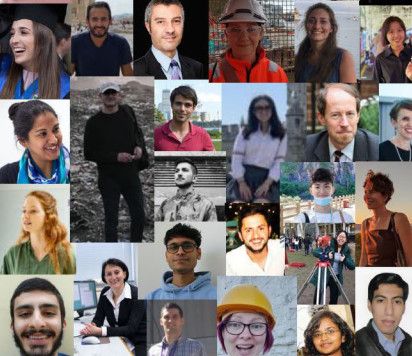Overview of the EWRE research group
Overview of the EWRE group
The research interests of the Environmental and Water Resource Engineering (EWRE) Section, focus primarily upon aspects of Environmental Engineering, Water Resource Management and Solid Waste Management. The Section addresses some of the most fundamental issues for society including: flood protection, sustainable water resource development, the provision of safe water supplies and sanitation, and the management of wastes and their environmental impact.
Who works in the EWRE section
- Environmental and Water Resources Engineering (EWRE) Academic and Teaching Staff A-Z
- Environmental and Water Resources Engineering (EWRE) Research Staff A-Z
Environmental and Water Resources Engineering (EWRE) Academic and Teaching Staff A-Z
| Photo | Details |
|---|---|
 |
Adrian ButlerProfessor of Subsurface Hydrology, DIC, PhD, FRMetS, FGSDirector of MSc in Hydrology Sub surface flow and transport processes and their environmental impact. |
 |
Wouter BuytaertProfessor in Hydrology and Water Resources, PhDDigital Communications Coordinator Hydrology and water resources; Environmental change; Land use impacts; Hydrological modelling; Data assimilation and uncertainty analysis; Decision support systems; Sustainable development; Tropical hydrology. |
 |
Geoff FowlerSenior Research Fellow, PhD, MRSC, CChemDepartment Safety Officer Thermal and microwave pyrolysis; activated carbon production and application; Contaminated land treatment; Hazardous waste management; Composite recycling; Water jetting. |
 |
Sue GrimesProfessor and Royal Academy of Engineering Chair in Waste and Resource Management, PhD, MBA, DipMRS, CSci. CChem. FRSC, CEnv, MCIWMDirector of MSc in Environmental Engineering Undergraduate Year 4 Coordinator Recovery of value components from wastes for conversion to commercially useful products; Closed-loop methodologies towards resource efficiency; Decision-support tools for sustainable waste management. |
 |
Evina KatsouProfessor of Water Engineering, PhDWastewater Treatment and Resource Recovery Technologies and Green Technology Innovations, AI-Driven Environmental Solutions and Big Data Analytics in Water Management, Greenhouse Gas monitoring and mitigation in Water systems, Carbon Footprint Mitigation Strategies, Circular Economy Implementation: Water, Biobased Systems and other sectors, Sustainable Water Resources and Environmental Management Metrics, Renewable Resource Utilization and Biorefinery Approaches in Industry applications, Sustainability & Circularity Measurement and Assessment, Integration of Life Cycle Assessment (LCA), Techno-Economic Analysis (TEA), Risk Assessment and Social Impact Assessments |
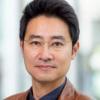 |
Po-Heng (Henry) LeeSenior Lecturer in Wastewater Engineering, PhDAnaerobic biotechnology, i.e., fermentation, digestion, anammox, quantum-induced metabolism, for mining resources from wastewaters with thermodynamic and meta'omic techniques |
 |
Ana MijicReader in Water Systems Integration, PhD, DICCo-Director of the Cente for Systems Engineering and InnovationOutreach Coordinator Satish Dhawan Visiting Chair Professorship at Indian Institute of Science (IISc) Bangalore Urban hydrology and urban ecosystems; Groundwater-sewer interactions; Urban water and energy use; Water resources assessment and climate change mitigation. |
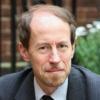 |
Christian OnofReader in Stochastic Environmental Systems and Senior Tutor (PGR), PhD, DIC, FSSStochastic modeling of precipitation related variables and the impact of climate change upon hydrological variables. |
 |
Athanasios PaschalisSenior Lecturer in Hydrology, PhDLecture Programme Coordinator Stochastic modelling of rainfall; Probability theory and statistics; Ecohydrology and water/soil/plant atmosphere interactions; Physically based modelling for catchment hydrology; Natural hazard risk analysis. |
 |
Stephen R. SmithProfessor of Bioresource Systems, BSc, PhD, MCIWM, MCIWEM, C.WEM, CEnvHead of Environmental and Water Resources (EWRE) Section Bioresources management, treatment, land application, agronomic value, environmental and health impact; Energy products from biodegradable solid waste. |
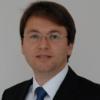 |
Ivan StoianovReader in Water Systems Engineering, PhDModelling and optimal control of water supply and wastewater systems: Sensing and monitoring of civil engineering infrastructure; Founder of the InfraSense lab. |
 |
Michael TempletonProfessor of Public Health Engineering, PhD, CEng, FICEOxfam and Water For People / Royal Academy of Engineering Research Chair in Global Sanitation Technology Drinking water quality and treatment; Chemical and microbiological contaminants in water; Disinfection processes; Disinfection by-products; Water and sanitation for developing countries. |
| Environment Engineering Academics A-Z | |
Download our Departmental Research Brochure
Environmental and Water Resources Engineering (EWRE) Research Staff A-Z
| Photo | Details |
|---|---|
 |
Angelina AisopouDaphne Jackson fellow, PhDAnalytical and experimental investigation of chlorine decay in operational distribution networks. Keywords: electrochemical water quality sensors, chlorine decay, distribution networks. Email Angelina |
 |
Suhad AlmuktarProject Coordinator |
 |
Emma BeirnsResearch AssistantIdentifying the genes responsible for sulfonamide degradation in Anaerobic Fluidised-bed Membrane Bio-Reactors (AFMBR) and any association to Direct Interspecies Electron Transfer (DIET) Email Emma |
 |
Stanislava BoscovicResearch Associate, PhDImprovement of Public Health and Wellbeing in cities through the systematic implementation of new integrated, nature-based technologies. Email Stanislava |
 |
Eduardo Rico CarranzaResearch AssistantEmail Eduardo |
 |
Ben HowardResearch Associate, PhDWater-related hazards, like flooding and water pollution, in cities in the global south, with a particular focus on enabling equitable and effective adaptation. Email Ben |
 |
Leyang LiuResearch Associate, PhDResilience in Integrated Water Systems (RIWS) Email Leyang |
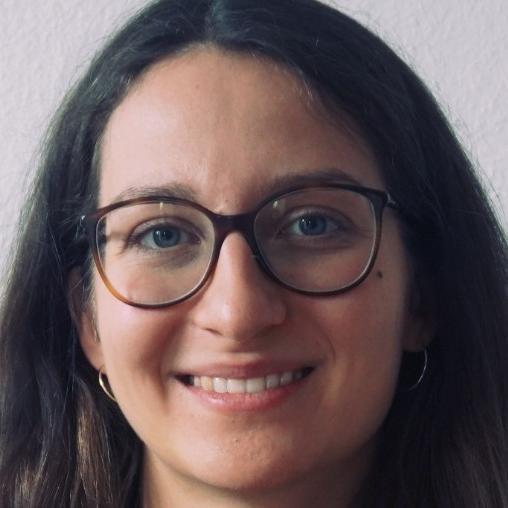 |
Liliane MannySwiss National Science Foundation (SNSF) postdoc mobility fellowKeywords: water governance, network analysis Email Liliane |
 |
Laure SioneResearch Associate, PhDProject: Pathways to Equitable Healthy Cities which aims to advance the science that underpins sustainable urban development and healthier lives. Funded by the UK Wellcome Trust. Email Laure |
 |
Pepe Puchol-SalortHoffmann Research Associate in Water Innovation, PhDCo-creation of innovation and entrepreneurship within the water sector, aiming to identify strategic roadmaps for transformation, ensuring the equitable, efficient, safe, and accessible adoption of novel technologies for all. Email Pepe |
 |
Thomas RowanResearch AssociateCommunity Water Management for a Liveable London (CAMELLIA); Computational hydraulics; infiltration modelling; unsaturated soil mechanics; Hydraulic Ram Pumps Email Tom |
 |
Shamas TabraizResearch Associate, PhDReducing Greenhouse Gas Emissions and Engaging Antibacterial Resistance in Anaerobic Treated Effluents (REGENERATE) Email Shamas |
 |
Will VenessResearch AssistantInnovation in water monitoring systems for flood and drought resilience Email Will |
 |
Aly Joy UlusoyResearch Associate, PhDThe implementation of optimization methods for the design-for-control of water distribution networks. Email Aly |
 |
Ziyan ZhangResearch Associate, PhDProposing a novel use of the integrated water system model to support the planning application process for new urban developments Email Ziyan |
| Environment Research Staff A-Z | |
Administration contacts
| Photo | Details |
|---|---|
 |
Environmental Engineering MSc Course Director Professor Sue Grimes +44 (0)20 7594 5966 |
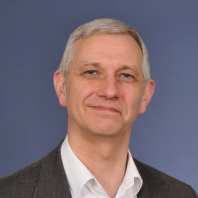 |
Hydrology & Water Resources Management MSc Course Director Professor Adrian Butler +44 (0)207 594 6122 |
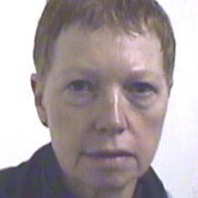 |
Cluster Administrator Ms Judith Barritt +44 (0)207 594 5967 |
| Administration contacts for the EWRE cluster | |
Our community in numbers*
Our academics
- 55 full-time academic staff
- 42 part-time, honorary and visiting
- 90+ research staff
- 40+ Professional Services and Technical staff
Our student population
- 226 PhD students
69% male; 31% female
42 nationalities - 292 MSc students
58% male; 42% female
42 nationalities - 456 Undergraduates
42 nationalities
* all numbers are approximate
Measures of success
Research Assessment Exercise
- REF 2021. 75% of research assessed to be 4* (highest rating), 25% assessed to be 3*.
QS World Universities rankings
- Subject Ranking. Civil Engineering = 6th (2021); 6th (2020); 6th (2019); 3rd (2018)
The Times Higher Education world ranking
- Subject Ranking. Civil Engineering = 4th (2021); 11th (2020); 12th (2019)
National Student Survey
- Overall Satisfaction, 92% (2022), 90% (2021); 78% (2020); 88% (2019)
